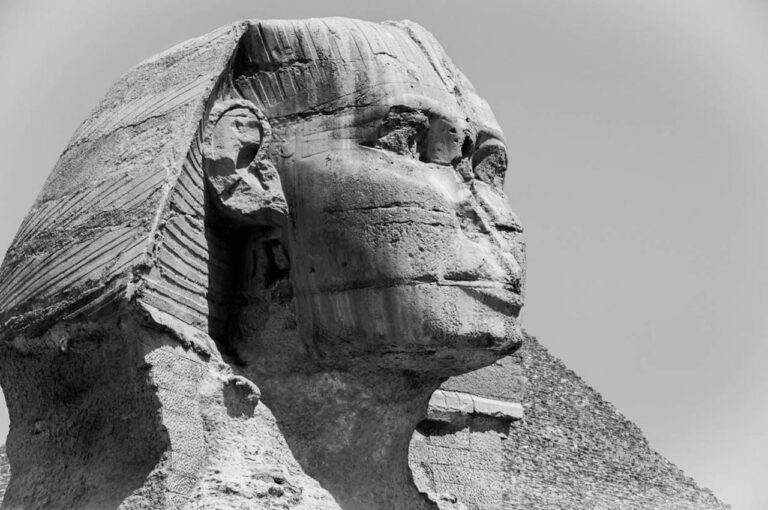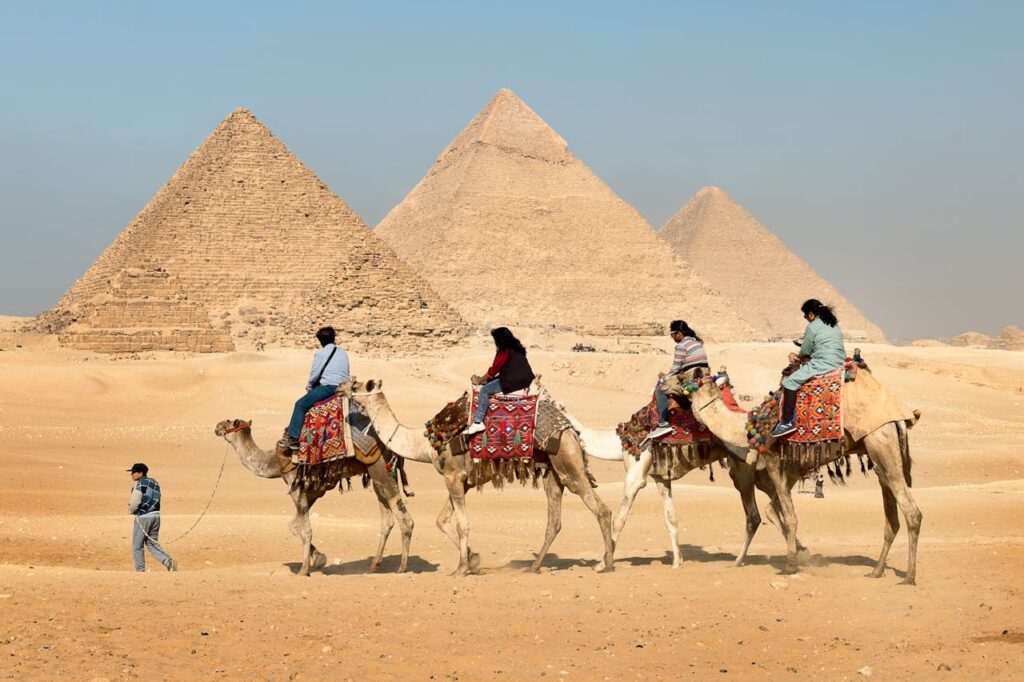Egyptomania is alive and well in some communities, with groups claiming ancestral ties to the ancient Nile River civilization. This phenomenon transcends passing trends – it reflects a deep human yearning for identity, empowerment and a connection to the grandeur of ages past.

Rewriting the Racial Narrative
The rise of Afrocentric ideologies in the late 20th century sparked a re-examination of the racial ancestry of ancient Egyptians. For some African American groups, viewing ancient Egyptians as Black Africans became a point of ethnic pride and empowerment. Linking oneself to the sophistication of Pharaonic Egypt provided a counter-narrative to the systemic oppression and denial of heritage experienced by many Black Americans.
Other minority groups facing marginalization may have found similar solace in ancient Egypt’s symbols of progression – laying claim to descending from the engineers of pyramids, hieroglyphics and early monotheism.
Pseudo-History Meets Racial Agenda
While mainstream historians have dismissed fringe claims of ancient Egyptian-Native American contacts, these theories persist amongst some Indigenous peoples. The desire to elevate one’s ancestral lineage by associating with an ancient civilization is an understandable psychological pull.
Equally unsubstantiated, but wildly popular in some circles, is the belief that ancient Egyptians were the progenitors of all human civilization – a “pan-human” heritage to claim. These theories are tinged with racist agendas that aim to re-center Egypt as the true birthplace of humanity.
The Mystique of the Esoteric
Beyond ancestral claims, Egypt’s occult mystique has drawn new religious movements and esoteric societies aiming to resurrect Pharaonic spirituality and secret wisdom. Ancient mythological symbols are repackaged as progenitors of Freemasonry, New Age practices and obscure quasi-religious sects.
For some cultural voyeurs, ancient Egypt simply represents an exotic fetish – a canvas upon which to project modern spiritual leanings, cultural appropriations or eccentric ideologies. This commercialization of ancient symbols is inevitably viewed as offensive cultural pillaging by critics.
Unpacking the Human Urge to Connect
At its core, Egyptomania rests upon the fundamental human yearning to locate one’s heritage within the sweeping legacies of antiquity. Ancient Egypt’s towering monuments epitomize humanity’s early triumphs in a way that’s irresistibly compelling as an ancestral taproot, whether scientifically justified or not.
For minority groups rewriting historical narratives, Egypt empowers. For fringe theorists, it offers a sheen of legitimacy. For others, it caters to pop culture fetishes or spiritual intrigue. While the fascination manifests diversely, Egypt’s enduring mystique speaks to the shared human desire to unearth one’s deepest identity and ancestral belonging.

Hey there! We hope you love our fitness programs and the products we recommend. Just so you know, Symku Blog is reader-supported. When you buy through links on our site, we may earn an affiliate commission at no extra cost to you. It helps us keep the lights on. Thanks.
Disclaimer: The information provided in this discussion is for general informational and educational purposes only. It is not intended as medical or professional advice. Only a qualified health professional can determine what practices are suitable for your individual needs and abilities.
